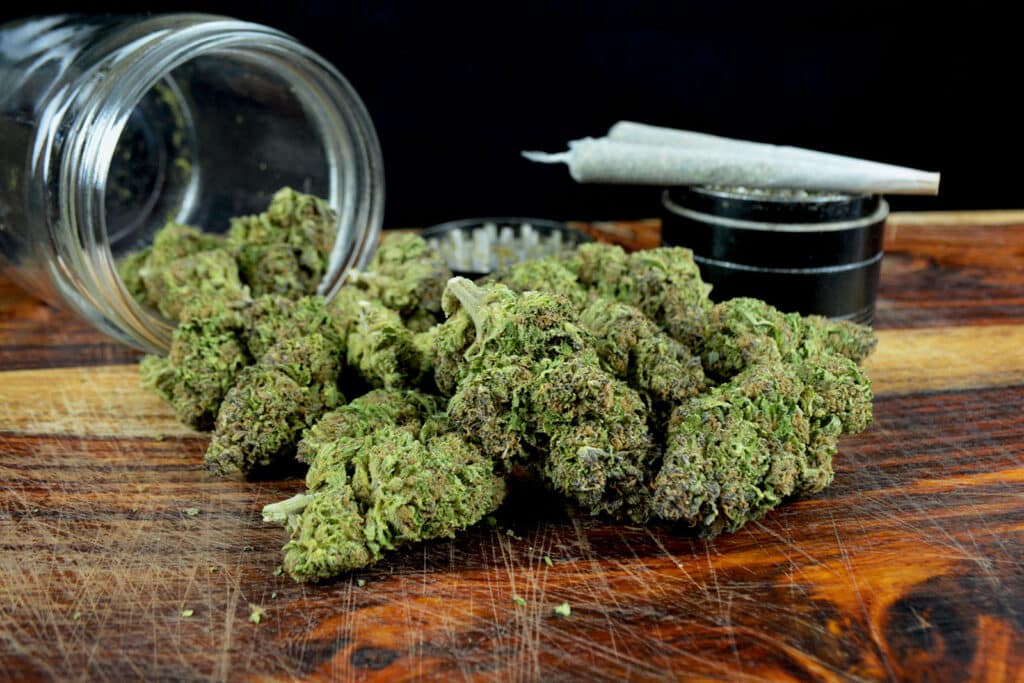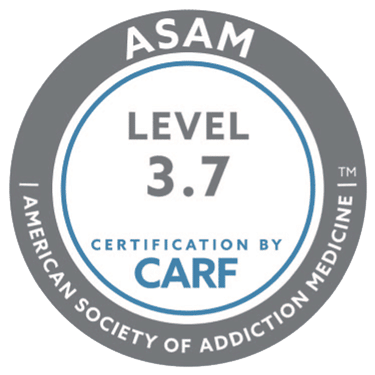There are several reasons people may want to detox from marijuana, including professional and personal motivations. One common reason is preparing for a drug test, often required for employment in fields with stringent drug policies, such as healthcare or government positions. Another reason may be health-related; some cannabis users may feel adversely affected by THC side effects, like lethargy or decreased focus. Lastly, individuals may wish to quit marijuana altogether to improve their mental and physical well-being and reduce THC levels in their bodies.
This article explores weed detox and some methods that may help in reducing THC metabolites through the detoxification process. Whether you’re considering detox kits or simply seeking to understand the body’s natural excretion of THC, we cover options to help support your goals, including those for individuals managing marijuana addiction or substance use.
How Long Does Weed Stay in Your System?
The primary ingredient in marijuana is THC or Tetrahydrocannabinol, which is the compound that’s primarily responsible for how weed makes you feel. The higher the percentage of THC, the more potent the strain. How long THC stays in your system depends on a variety of factors, such as your metabolism and body fat.
Frequency
One of the main factors is how often you ingest weed. If you rarely ingest weed, your body could eliminate THC within a few days. If you’re a frequent user, eliminating THC from your body could take weeks or months. Why? Your body stores excess THC in your fat cells, and it becomes more difficult to get rid of once embedded there.
Body Fat
Since excess THC gets stored in your fat cells, the more body fat you have, the longer it will take for your body to eliminate THC.
Metabolism
People with fast metabolism tend to eliminate toxins and substances faster than those with slower metabolism. This means people with a fast metabolism will flush THC out of their bodies faster.
The Form of Marijuana Used
If you smoke or vape weed, THC enters your body faster. However, it’s also eliminated quickly. On the other hand, if you eat a weed edible, such as a brownie, the THC is first processed through your digestive system before you feel any effects. This means it takes longer to feel the effects of THC, and it takes longer for your body to eliminate it.
Average detection times Weed stays in your system
| Specimen | Detected in System |
|---|---|
| Blood Tests | Up to 12 hours |
| Hair Tests | Up to 90 days, depending on the frequency of use and individual hair follicle growth rates |
| Saliva Tests | Up to 24 hours, with a shorter detection window for occasional users |
| Urine Drug Tests | Up to 30 days or more, influenced by last use, body mass index (BMI), metabolic rate, and the user’s frequency of use |
Detection times can vary based on individual factors such as metabolic rate and body mass index, as well as the length of time since the last use.
Natural Detox Methods
Our bodies have a natural detox process, flushing out toxins through our sweat glands, livers, and kidneys. The liver, specifically, is a “detoxification machine,” eliminating anything the body deems as toxic. However, because this process takes time, there are ways you can hurry the elimination process along.
Switch to a Plant-Based Diet
Another way to speed up your body’s natural detox process is to eat more vegetables, fiber, and fruits. Fiber, in particular, helps your body digest food; and a healthier digestive system means you can eliminate THC faster. In addition, when you eliminate processed food, sugars, and junk food from your diet, you keep your liver – or your detoxification machine – working efficiently.
Exercise
Staying active can also speed up how fast your body removes THC. Exercise speeds up your metabolism, translating to a faster elimination process. You’ll also sweat some of the THC out.
Common Myths About Marijuana Detox
There are many myths about detox, including claims that extreme detox drinks, teas, or special kits can instantly eliminate THC from the body. While these drinks and kits may dilute your urine, making THC harder to detect temporarily, the THC toxins remain in your system. Similarly, some believe that natural supplements like milk thistle or dandelion can speed up detox, but while they may support liver health, they do not remove THC from your body.
Drinking More Water
Although drinking more water does flush toxins out of your body through your kidneys, it doesn’t work for THC levels. THC is actually hydrophobic, which means it repels water and won’t bond to water when you drink it. In other words, water will flush other toxins out of your body, but the THC toxins will cling to your fat cells.
Detoxing With Vinegar
Some people believe that drinking lots of apple cider vinegar the day before a drug test can help their body flush out THC toxins. Unfortunately, if you’re trying to remove THC from your system for a drug test, this method will raise eyebrows. The pH level of normal urine ranges from 4.5 to 8.0 while urine with apple cider vinegar ranges from 2.0 – 3.0.
Drinking Cranberry Juice
While cranberry juice gives you loads of vitamins and acts as a diuretic (makes you pee a lot), it doesn’t help flush THC out of your system. Cranberry juice is great if you have a urinary tract infection as it prevents bacteria from attaching itself to your bladder wall. But with regards to THC, there doesn’t seem to be a direct impact.
Medical Detox for Marijuana Use
Many people have no issues detoxing from marijuana on their own. However, some heavy users may suffer unpleasant withdrawal symptoms, such as anxiety, depression, and insomnia. This typically means they have a marijuana dependency. In these cases, it may be necessary to seek a rehab center that offers a medical detox program.
The Benefits of Detoxing in a Rehab Center
Some of the benefits of detoxing in a rehab facility include:
- 24/7 care from healthcare professionals
- Judgement-free space
- Prevents relapses
- Medical staff can help manage withdrawal symptoms
- Counseling available during detox
Recreate Behavioral Health offers a supervised medical detox program where individuals have round-the-clock personalized care and counseling in the event their withdrawal symptoms become extreme or too difficult to handle on their own. And the detox stage is just the first part of an entire treatment program.
The team at Recreate Behavioral Health believes in additional therapy to find the root cause of an individual’s marijuana dependency. After detox, we offer a customized treatment program that helps individuals address the physical, psychological, and emotional aspects of their addiction.
How to Support Your System During Detox
Detoxing from any substance can be hard on the body. However, there are ways you can support your body during the detox process.
Exercise
Physical activity boosts your metabolism and helps the removal of THC toxins through sweat. Exercise can also help improve your mood at a time when you may feel anxious and depressed.
Hydrate
Detoxing from weed leaves you dehydrated, so it’s a good idea to replenish your body with plenty of water. Water can also help with some of the withdrawal symptoms, like headaches.
Eat Nutrient-Rich Foods
Eating nutrient-rich foods, such as vegetables, fiber, and lean proteins, can give your body the energy it needs during the detox process. Every time your liver neutralizes a toxin, it gets damaged by the free radicals the toxin produces. Nourishing your body with foods high in antioxidants can help fight off these free radicals.
Get Plenty of Sleep
While insomnia is a withdrawal symptom during marijuana detox, you may be able to take a natural sleeping aid to help you sleep, such as melatonin. Sleep helps the body repair itself, so try to sleep 7-9 hours every night.
Manage Your Anxiety
Anxiety is another withdrawal symptom, which you can manage by engaging in activities like yoga and meditation. Incorporating about 30 minutes of meditation or deep breathing before you sleep can help with both anxiety and insomnia.
When to Seek Professional Help
Some people can manage detox on their own, but there are signs that professional treatment at Recreate Behavioral Health may be beneficial for your overall health and mental health.
One of the most worrying signs that you need to enter detox at a rehab facility is if you have Cannabinoid hyperemesis syndrome (CHS). CHS develops from excessive or prolonged marijuana use, and people who have CHS exhibit symptoms such as nausea, vomiting, stomach pain, and dehydration.
Another sign that you may need professional help is if you have tried to quit marijuana but keep relapsing. If you have trouble going weeks without smoking or eating an edible, it’s a good idea to call Recreate Behavioral Health.
If your use of marijuana is causing conflicts at work or home, it may be time to seek professional help as well. You may have lost a job or your partner may hint that you’re smoking too much weed, for example. In scenarios like this, it’s a good chance you have a marijuana dependency.
Finally, if you’re using marijuana to cope with depression or trauma, you may want to quit and seek therapy instead. Therapy will help you address the root cause of your pain.
Contact Recreate Behavioral Health
If you or a loved one is struggling with marijuana dependency, Recreate Behavioral Health can assist with addiction treatment through detox, counseling, and comprehensive recovery programs. Our treatment center offers a medically supervised detox program, ensuring you’re always in a safe, judgment-free space. Once detox is complete, we provide a variety of treatment options, including customized counseling programs and an evening intensive outpatient program for those needing a more structured recovery journey.
Would you like to find out more? Contact our team today for information about our detox program, inpatient services, and recovery options.










